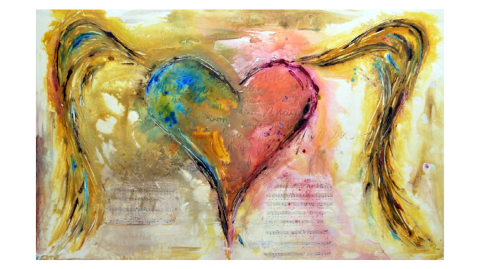So then, putting away falsehood, let us speak the truth to our neighbors, for we are members of one another. Be angry but do not sin; do not let the sun go down on your anger.
--Ephesians 4:25-26
In a collection of stories entitled Fidelity, author Wendell Berry returns his readers to the fictional town of Port William, Kentucky, where the relentless demands of life and land intersect to reveal more than a few lessons in vital community. The strength of Berry’s characters is manifest not in their success, of course, but often in and through the awful grace of humiliation. Such is the case of “The Jonquil of Mary Penn,” which tells the tale of a young woman who is navigating the plight of personal sickness without the benefit of her traditional support system.
Like many of us, Mary is torn between her old life and the new. In the days of her upbringing, she played the role of a respectable daughter in a family that was “always conscious of its position and of its responsibility to be itself.” In her new chapter, however, she had been disowned by that family for marrying Elton, a man who was judged to be “nothing” in the eyes of her kin.
After calling on the preacher to conduct a wedding ceremony in the middle of the night, the couple was hoping that their marriage would be accepted as an accomplished fact. They were wrong. As Berry describes the situation, “it was not acceptable, and it was never going to be. She no longer belonged to that family. To them it would be as if she had never lived.”
The presumption of her elders was that Mary has some growing up to do. Indeed, she does! But the way Berry tells this story she might not be the only one.
“She was seventeen, she had attended a small denominational college for less than two months, and now her life as it had been had ended. The day would come when she would know herself to be a woman of faith. Now she merely loved and trusted.”
It is the inference of that last line that leaves me with a lump in my throat…merely loved and trusted…as if these courageous actions were somehow insufficient on any given day!
Furthermore (as I also hear it), the underlying implication is that our faith may not always be ready for us when we need it. That is, living as Christ takes time, nurture, and practice before we get it even close to ‘right.’ To become a person of “great faith” takes years of training. In other words, growing up is hard to do.
Knowing this to be true about ourselves, I would contend that we cannot necessarily afford to wait until we all get our act together before we make a move toward reconciliation. When it comes to healing the brokenness of our own families—those most precious to us at home, church, or other communities of covenant —it is likely the case that the basics of love and trust are still our best options in moving forward.
Is this true for you?
Are we, or are we not, still ‘members of one another’?
What is at stake for us?
Lord, forgive us the many nights we have let the sun go down while still harboring anger and resentment toward those with whom you have called us into community. Free us for joyful obedience as we learn to trust you with all that is broken among us. Heal our hearts and mind, by the power of your Holy Spirit. AMEN.
Grace to You,
Darren




